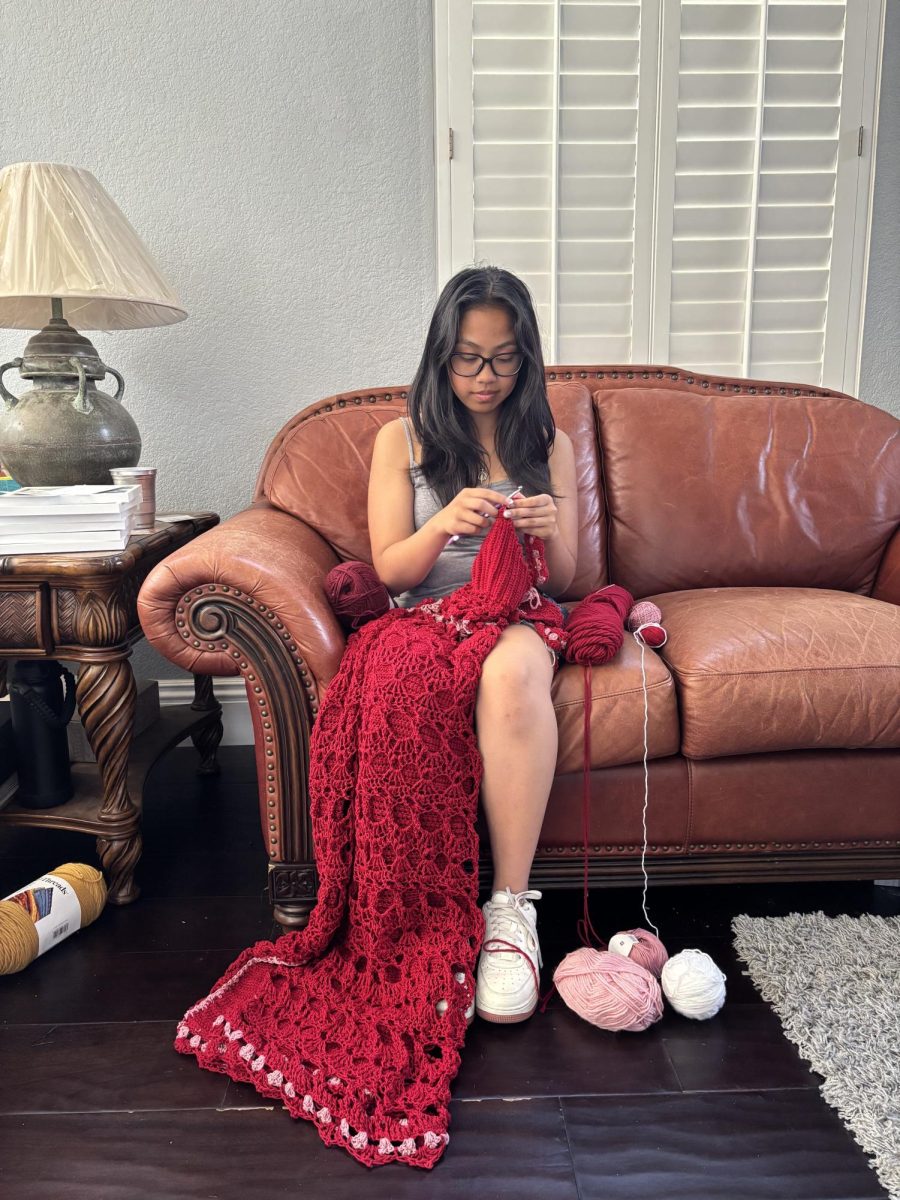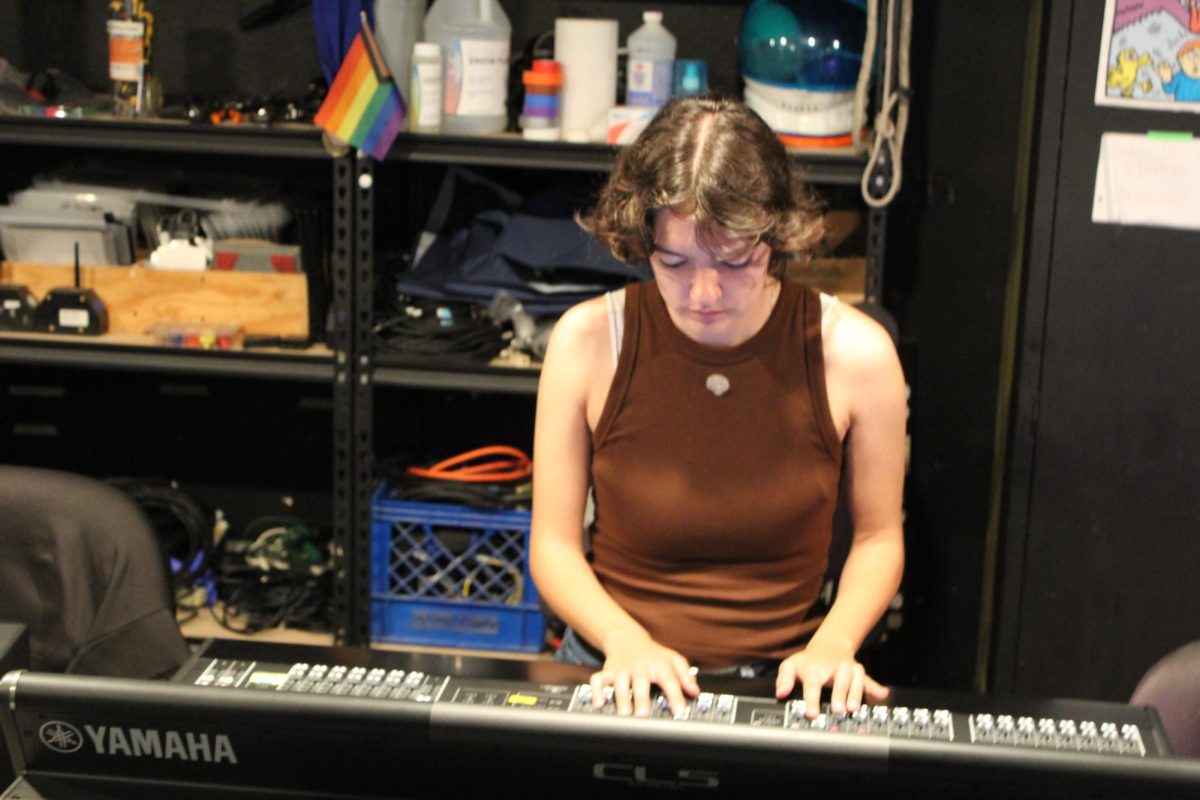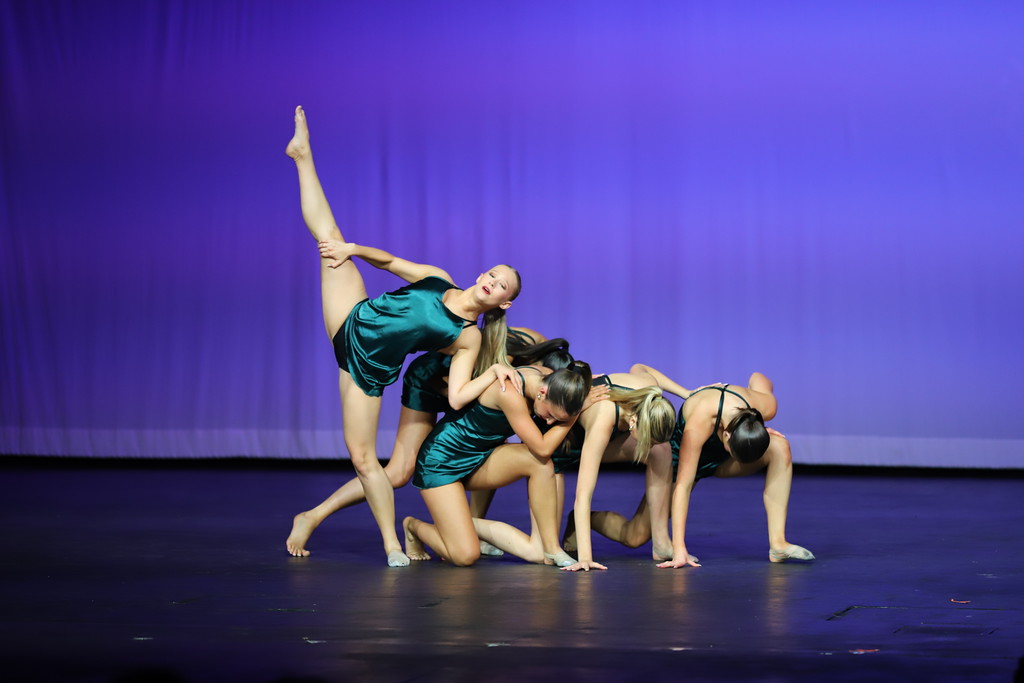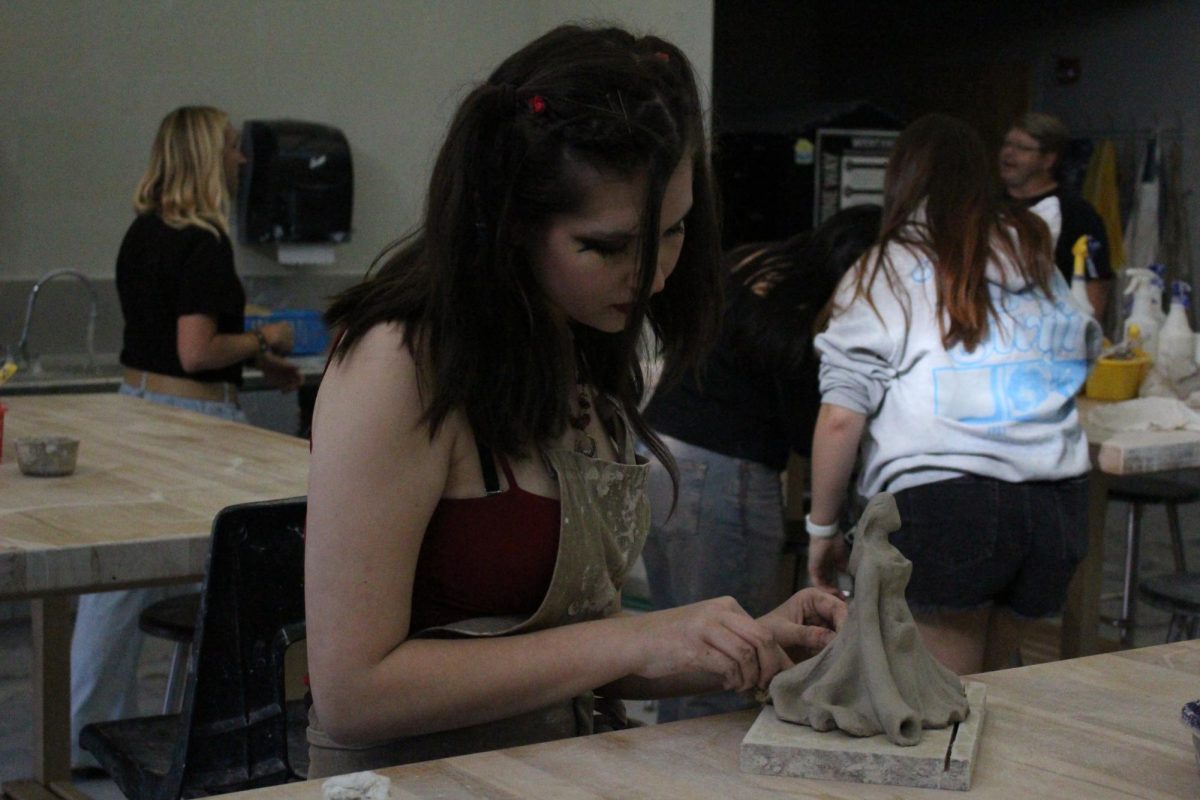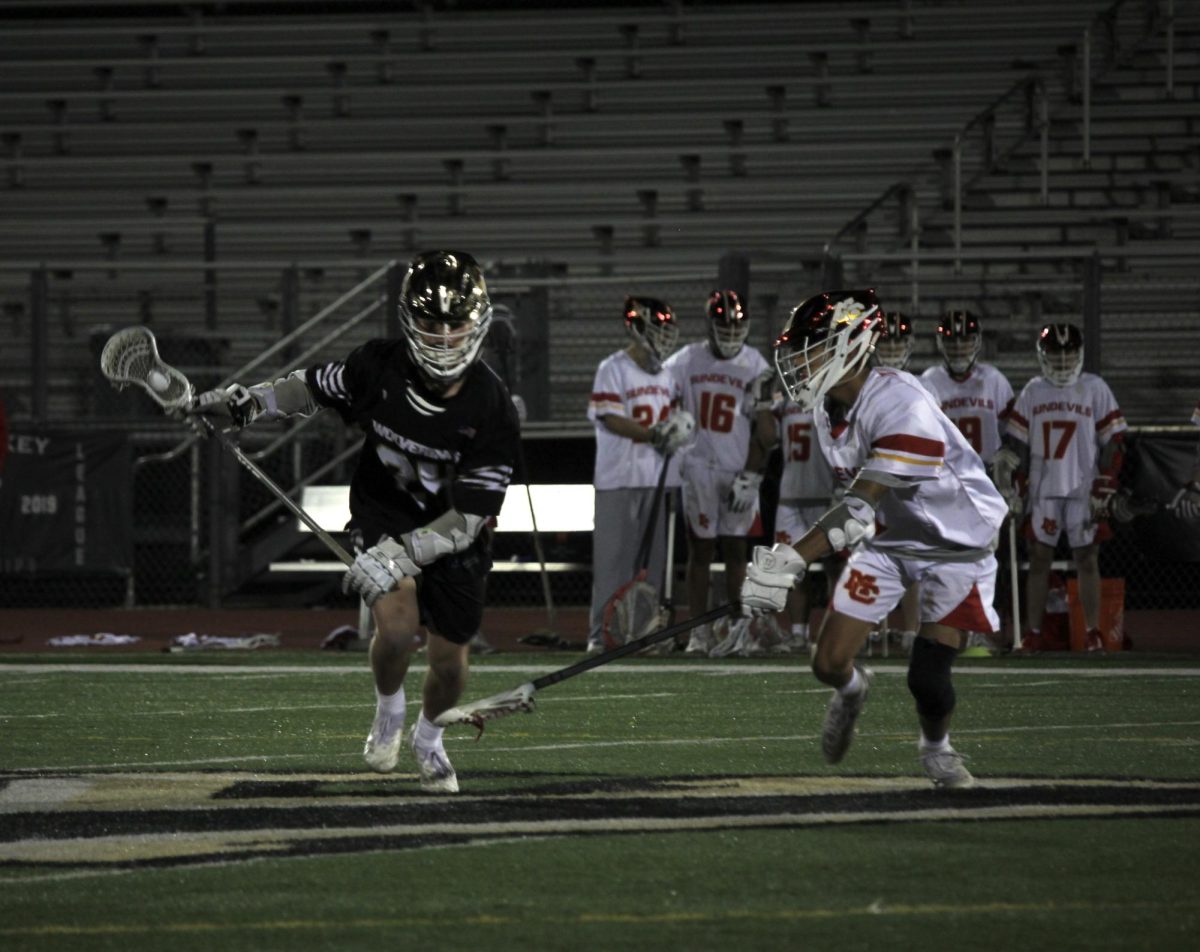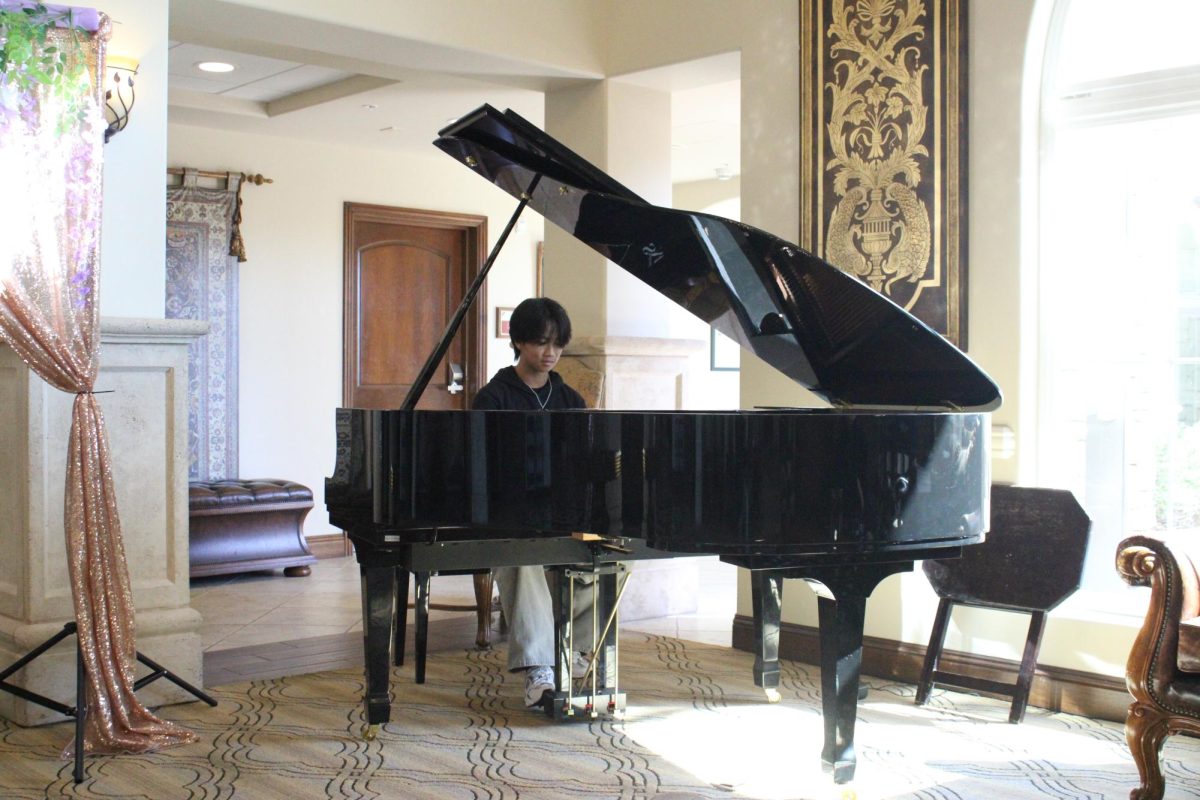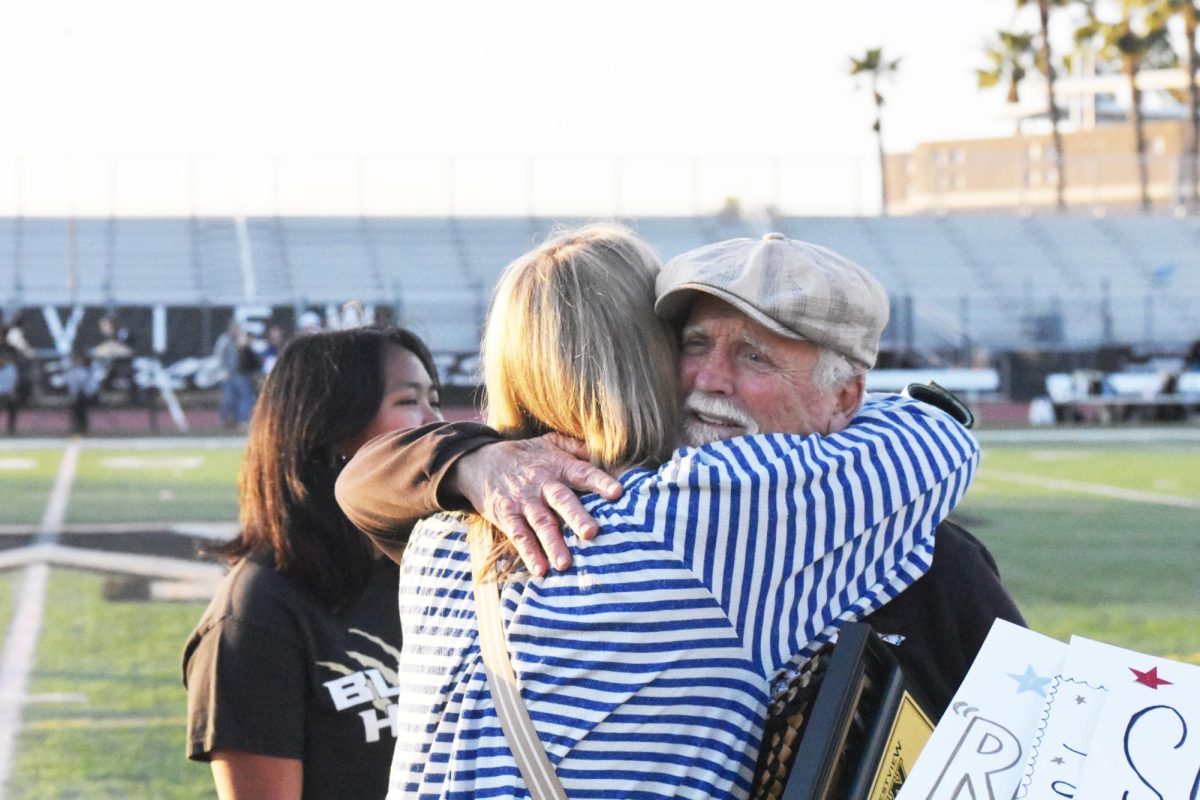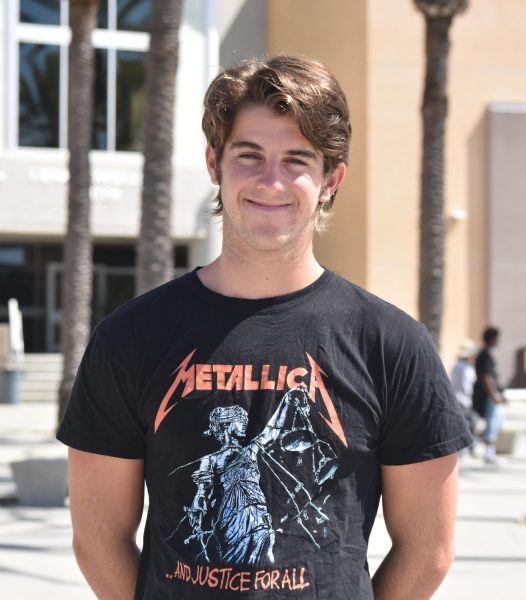Gabriel Sanchez Franz (12) was adopted from Guatemala and brought to the United States when he was 2 years old. Sanchez’s only connection to his family back in Guatemala is a single wrinkled black-and-white photo that sits in the bottom right corner of his vanity mirror. In the picture 2 month-old Sanchez sits in the arms of the mom he has no memory of.
“She’s holding me, [and] I’m less than a year old,” Sanchez said. “ [It’s] a reminder of my past, it’s something I never want to forget, and it’s just little things like that, cause that’s really the only thing I have physically of my mom.”
Sanchez was adopted by his white father, whom he calls dad. Two years later, Sanchez’s dad married his Mexican father, whom he calls papa.
Without a Guatemalan presence in his life, Sanchez was first confronted with a lack of understanding of his own culture in 6th grade. During a cultural fair at Mesa Verde Middle School, Sanchez’s teacher asked all the students to give a presentation about their culture.
“I remember going up to my teacher and [telling her] my situation,” Sanchez said. Obviously, I don’t know as much about my family background or Guatemalan heritage as other people would know about their culture. I remember her just being like, ‘You have to deal with it, you have to do your research by yourself.’ I remember that day like it was yesterday, how that was like the starting point. That was the first day I really dug deep into [understanding] how beautiful Guatemalan culture is.”
Although Sanchez has two last names, ever since this point in middle school he has chosen to go by ‘Gabe Sanchez’ to better emphasize the Hispanic part of his own heritage.
Sanchez explained that in both Guatemalan and Mexican culture, strong relationships with a big family are paramount. While Sanchez says he gets a bit of that connection through his 32 cousins on his Papa’s side, who live in Texas, he said he still feels disjointed from the familial connection aspect of his culture.
Sanchez explained that the feeling of isolation from his Guatemalan culture, as well as just a general feeling of isolation, has pushed him to work to build his own found family.
“Growing up adopted has left me feeling isolated a lot, and I understand what that feels like to be a little kid, 4-6 years old, but also a teen and a young adult, continuing to feel isolated in high school,” Sanchez said. “It’s really strengthened that notion in my mind that family is not always by blood and sometimes chosen family can be even more valuable. I’ve looked for other outlets elsewhere in my life to fulfill that kind of connection that I’ve never been able to relate to.”
Taryn Wyatt (9) also finds herself torn between her appreciation for her adoptive family and her longing to feel close to her birth family. Wyatt was adopted through a pre-arranged process when she was two days old. Wyatt doesn’t know the name of either of her parents or what they look like.
Wyatt’s longing can sometimes creep into many different parts of her life, like on the JV Cheer team where she is a base.
“Sometimes at basketball or football games if I see someone who looks like me I think oh my gosh, is that [my mom?],” Wyatt explained. “It’s a little sad at times. Sometimes I don’t think about [my birth family] for months at a time, but sometimes [my birth family] is something I think about every day. Sometimes I don’t think about it at all, but it’s definitely always there.”
Wyatt said that much of her life and search for her own identity is spent feeling pulled between the adopted family that has taken her in for her entire life, and the people she is related to but has never met.
“[With my birth family], it’s a lot of questions like, ‘Why couldn’t I be with you,’” Wyatt said. “It’s a lot like a lot of missing puzzle pieces, but I’m definitely really grateful for my [adopted] parents. But still, I wish I knew [my birth mom]. I wish I could meet her.”
In addition to searching for a connection to their birth family, both Sanchez and Wyatt share the feeling that they need to be the perfect child for their adopted family.
“It’s weird because you’ve known these people pretty much your whole life, and so you feel comfortable around them, but you also feel this need to still impress them as if they’re strangers,” Wyatt said. “I feel the need to always be the best at everything I’m doing and when I’m not, I feel like I’m disappointing them. Often with coaches or people in a motherly or fatherly position, I feel the need to impress them, and I get uncomfortable if they don’t think I’m doing my best.”
On top of this drive to succeed, Wyatt said that growing up without any knowledge about her birth parents has pushed her to want to figure out, early in life, the person she wanted to become.
“I think that being adopted gives you a certain push to figure out what’s going on, like you’re thinking about ‘Who am I?’,” Wyatt said. “I’ve always been someone who wants to be there, wants to help people.”
Being adopted has also influenced Sanchez’s career path, especially growing up in a family with people of Mexican, Irish, African-American, German, and Guatemalan heritage all in one household.
“It’s cultivated my passion for international work,” Sanchez said. “[Learning about adoption] has [also] just opened my eyes to how many children in the adoptive system are waiting to be adopted, especially from outside the country, and especially children that were once immigrants like myself.”
Sanchez said that growing up in a family with backgrounds, personalities, and ethnicities so different from his own has helped him to realize how similar all people really are.
“[My family is] just a walking example of what that truly means, that family isn’t defined by the color of your skin,” Sanchez said. “Family goes far beyond blood. [In] learning about other people’s cultures and backgrounds and where they come from, there is a level of family connection that can come with that. When you take the time to stop and listen to the stories of other people, [you’ll realize] people are a lot more similar than you think.”


